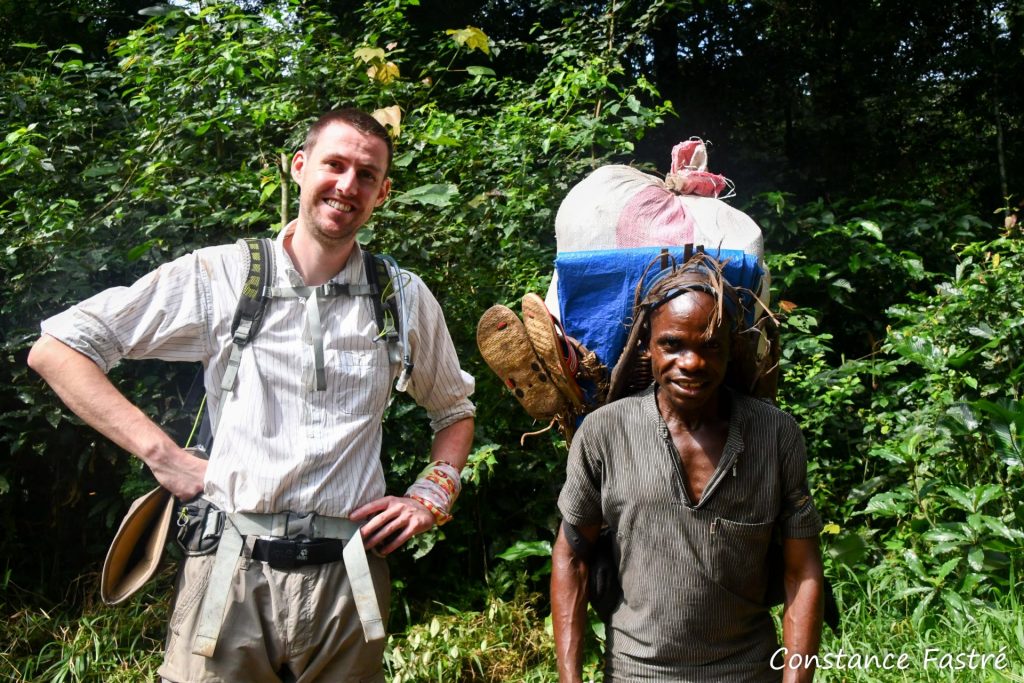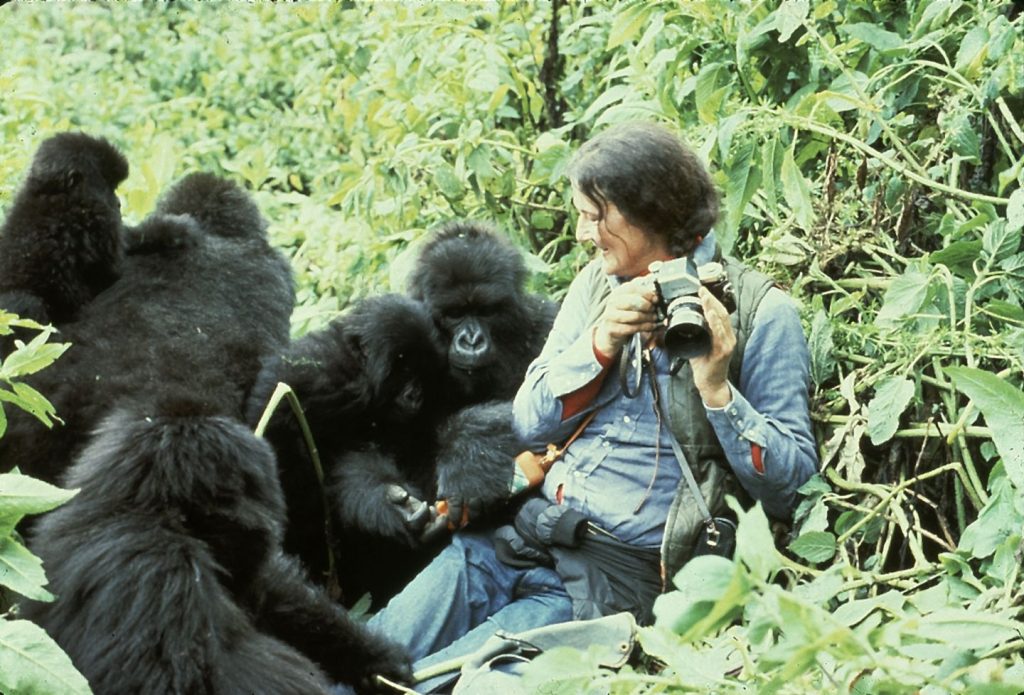Frederik and I turned to our right where the crashing noise came from. But as everywhere else we had been in the last days, all we could see around us were trees. I did not have the time to ask Frederik if he could see something when we heard something running towards us. Something big. We knew it was a male gorilla charging at us when it started screaming.
My heart stopped. Quickly, Célestin, our guide, Frederik and I gathered in a tight group. Célestin put his finger against his mouth. But there was no need to tell us to be quiet: we knew that when attacked by a gorilla, there are two rules. First, stay calm. Second, avoid looking it in the eyes. Start running and it will come after you. Short-breathed, we waited for a few minutes. It was one of these moments in which, faced with a wild and potentially dangerous animal, I felt both scared and excited. While I willed the gorilla not to come closer – I am not sure I would be able to stay calm in front of a pissed off adult gorilla – some part of me wanted to see it.
(Un)fortunately, it hid behind the trees, out of sight. Yet we knew it was there, close-by, watching us. What a thrill! After a while, it became clear the gorilla would no longer try to attack us. So, we followed Célestin on the path, in silence and as fast as we could. An hour later, helped with the adrenaline rush we had just experienced, we reached the safety of our camp.

We did not intend to cross paths with the gorillas in the forest. In fact, in the Nkuba Conservation Area, the Dian Fossey Fund is trying hard to study the gorillas while ensuring there is no contact between humans and gorillas. And there are two reasons why it is better to prevent human-gorilla interactions in Nkuba:
1) To protect gorillas
We don’t want to get close to gorillas to protect them from hunters. In the Virunga National Park or the Kahuzi-Biega National Park, where scientists and tourists can come close to the gorillas, the gorillas are habituated. Habituation is a process in which people approach animals until they get used to them. The result is that the animals are no longer scared by people and won’t run away when they see or hear them.
In Nkuba, which is not a National Park, there are no tourists but there can be poachers. Although it is illegal to hunt gorillas, some people have hunted them here in the past and still do in many parts of Congo. Thanks to the work of the Dian Fossey Fund, locals in Nkuba now protect their gorillas. But must protect the gorillas from foreign poachers! Because habituated gorillas would not run away from hunters, they would be easy targets. And it is impossible for the staff to follow all gorillas every day to protect them. We therefore believe that by keeping the gorillas wild, i.e. scared of humans, we protect them from poachers.

©Leaky Foundation
2) To protect people
It is better not to get too close to a wild gorilla, as we experienced a few days ago. Gorillas live in family groups composed of a father, the silverback, his females and all their babies. When scared, females run away with their babies. That was the first noise we heard. To allow them to get away safely, the male stays behind. It tries to find out what the problem is and attacks if he thinks the threat is big enough. And of course, people are usually considered a big threat by gorillas. Luckily for us, he did not really attack us, but had he done so, the consequences could have been dire. Gorillas are very strong and can kill people. In Nkuba, we thus teach our staff and visitors not to attempt to see gorillas. And if they meet them by accident, as we did, all they must do is to behave in a non-threatening way.
Living together in harmony
In Nkuba, our wild gorillas are no longer killed by hunters. And nobody gets killed by gorillas, even though we study them every day. Staying away from our gorillas is the best way to ensure both gorillas and people can live in peace, together.

